Publications
fp21 is building a new culture of foreign policy. Explore our publications below.

Improving Risk Assessment Processes within the State Department: Lessons from Foreign Terrorist Organization Practices
Michael Becker: The process governing the Foreign Terrorist Organization (FTO) listing process contains a number of pathologies emblematic of broader challenges in the practice of American foreign policy. The current FTO process reflects outdated attitudes toward resource stewardship, deterrence, and risk assessment that pervade current American foreign policy.
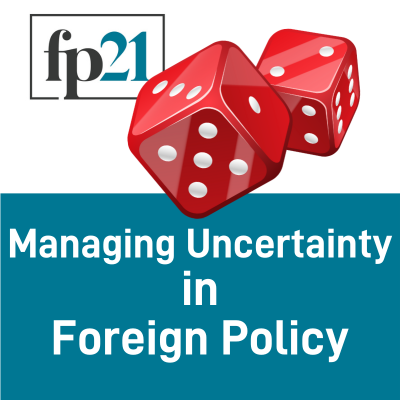
How to Embrace Uncertainty in Foreign Policy
Dan Spokojny: Managing uncertainty is a skill. It requires specialized techniques central to healthy decision-making. But when our policymakers ignore uncertainty in favor of instinct-driven assertions, they pass up opportunities to make it a little bit easier. Managing uncertainty should be a core skill for every aspiring foreign policy expert. This article is a primer on understanding how to manage uncertainty effectively.
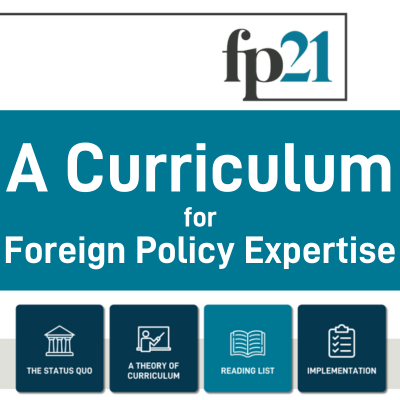
A Curriculum for Foreign Policy Expertise
Dan Spokojny: What training is required to become an expert in foreign policy Foreign policy is unique among fields of public policy in that there are no educational requirements, no body of tradecraft, and no standard training regimens to prepare its leaders. This article explores four categories of knowledge that all policymakers should know.
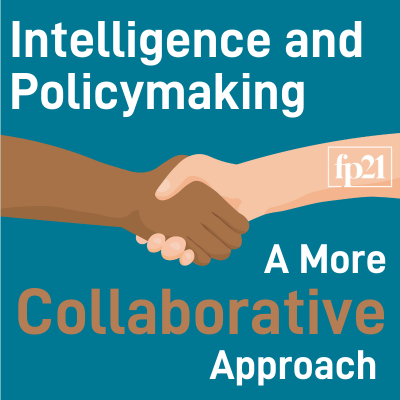
Intelligence and Policymaking: The Opportunity for a More Collaborative Approach
Gary Gomez: This paper explores the implications of a more collaborative and connected approach to intelligence analysis and policy formulation. It explores a model in which analysts and policymakers are co-located within policy offices at all levels of policymaking. The goal of this approach is to enable a better fusion of experience and knowledge to support holistic and relevant intelligence analysis and informed evidence-based foreign policy.
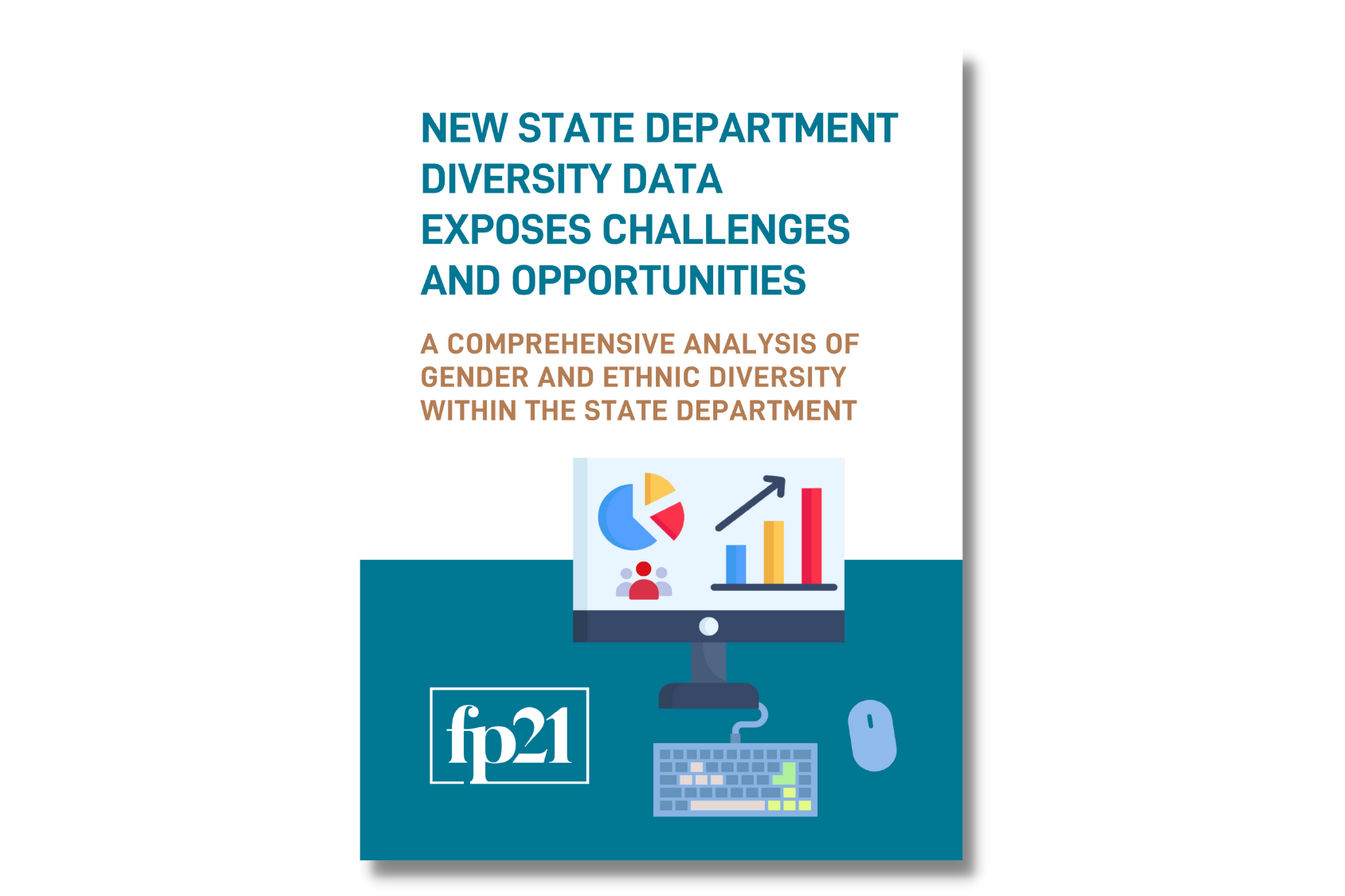
New State Department Diversity Data Exposes New Challenges and Opportunities
Ellice Huang, Thomas Scherer, Vic Marsh, & Dan Spokojny: How diverse is the State Department? Recently released State Department demographic statistics leave much to be desired. fp21 helps fill this gap by using sophisticated data science tools and archival information to examine representation in American diplomacy.
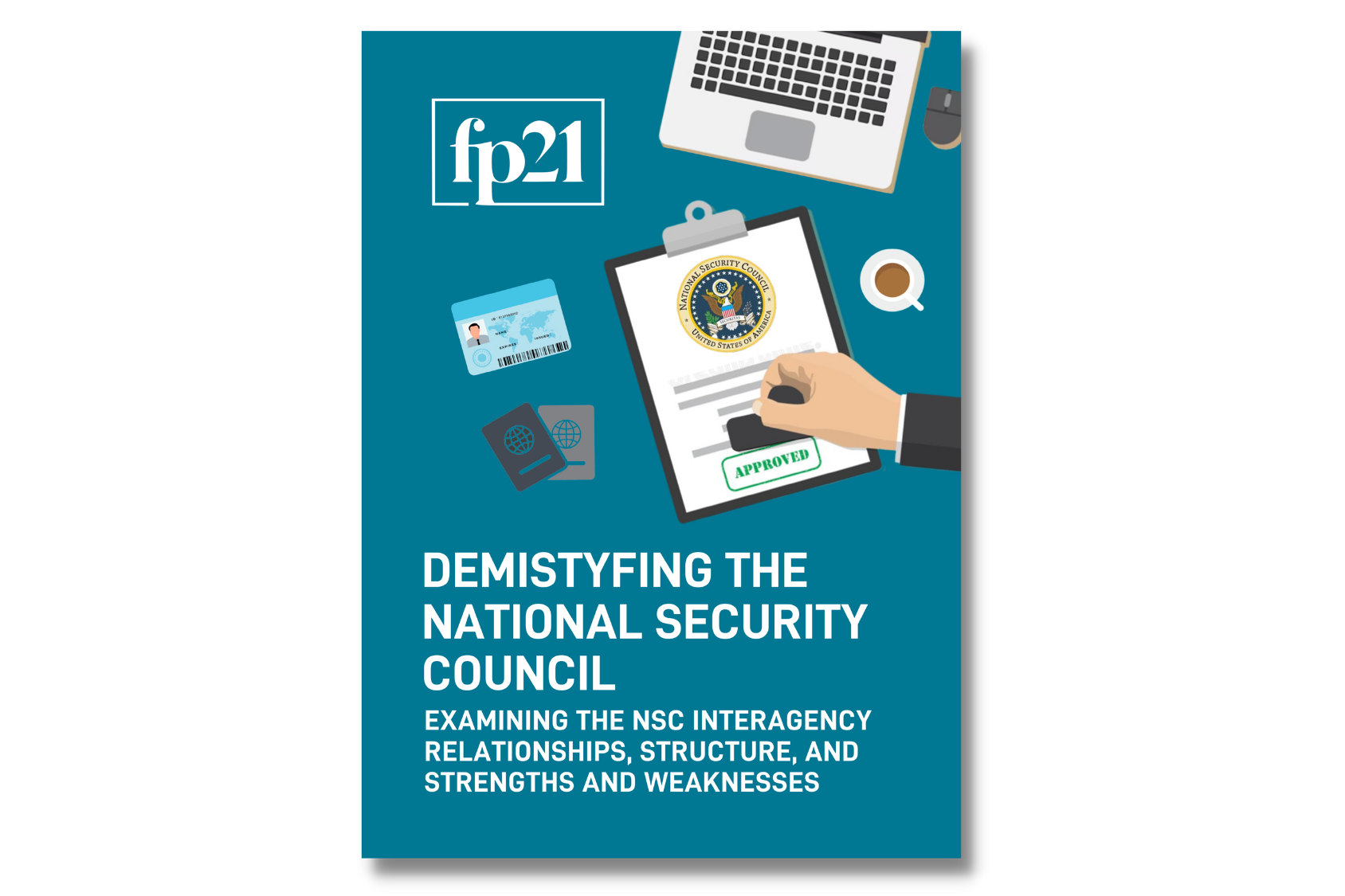
Demystifying The National Security Council: Examining the NSC interagency relationships, structure, and strengths and weaknesses
Alexandra Blum: Born in 1947, the National Security Council has become the central forum for shaping US national security. The NSC presents a vital case study of foreign policy reform given its constant evolution. This report unpacks how the NSC operates, who wields decision-making power, and how fourteen successive presidents have adapted it to respond to the priorities at hand. Understanding the NSC is foundational to recommending calibrated reforms for the rest of the national security apparatus.
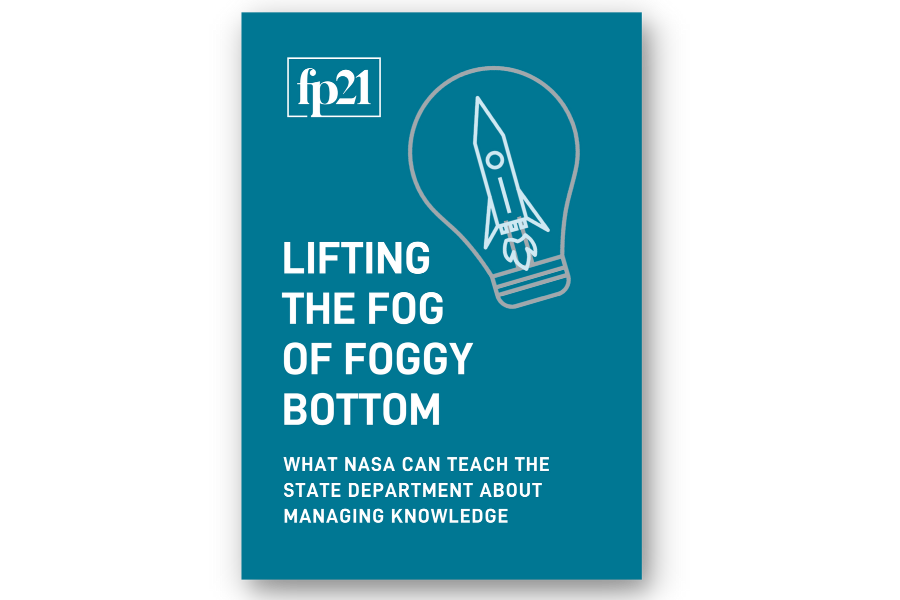
Lifting the Fog of Foggy Bottom: What NASA Can Teach the State Department about Managing Knowledge
This report explores how knowledge management can transform diplomacy. By prioritizing knowledge as its most important strategic resource, the State Department can make more effective policy, improve productivity, and build a learning-centric culture.
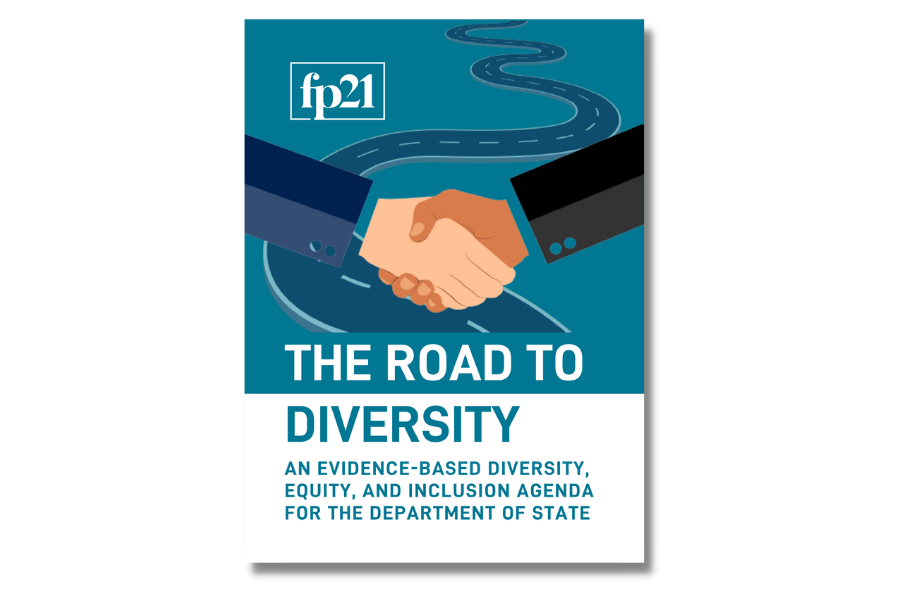
The Road to Diversity: An Evidence-Based Diversity, Equity, and Inclusion Agenda for the Department of State
This report deepens our understanding of the research on workplace diversity, equity and inclusion (DEI) initiatives and build a strong foundation of evidence for policymakers to use. We evaluate the most common recommendations to improve DEI based on the best-available evidence in organizations, categorizing each recommendation based on its likelihood of success according to the research.

Upgrading U.S. Public Diplomacy: a behind-the-scenes look at a new model for reform.
What should the future of diplomacy look like? Upgrading U.S. Public Diplomacy: A New Approach for the Age of Memes and Disinformation, published in collaboration with the Atlantic Council, outlines a set of principles and actions to strengthen the State Department’s public diplomacy institutions, domestically and abroad.
This blog post goes behind the scenes of this unique participatory model of research which prioritize consultations staff at every level of the bureaucracy.
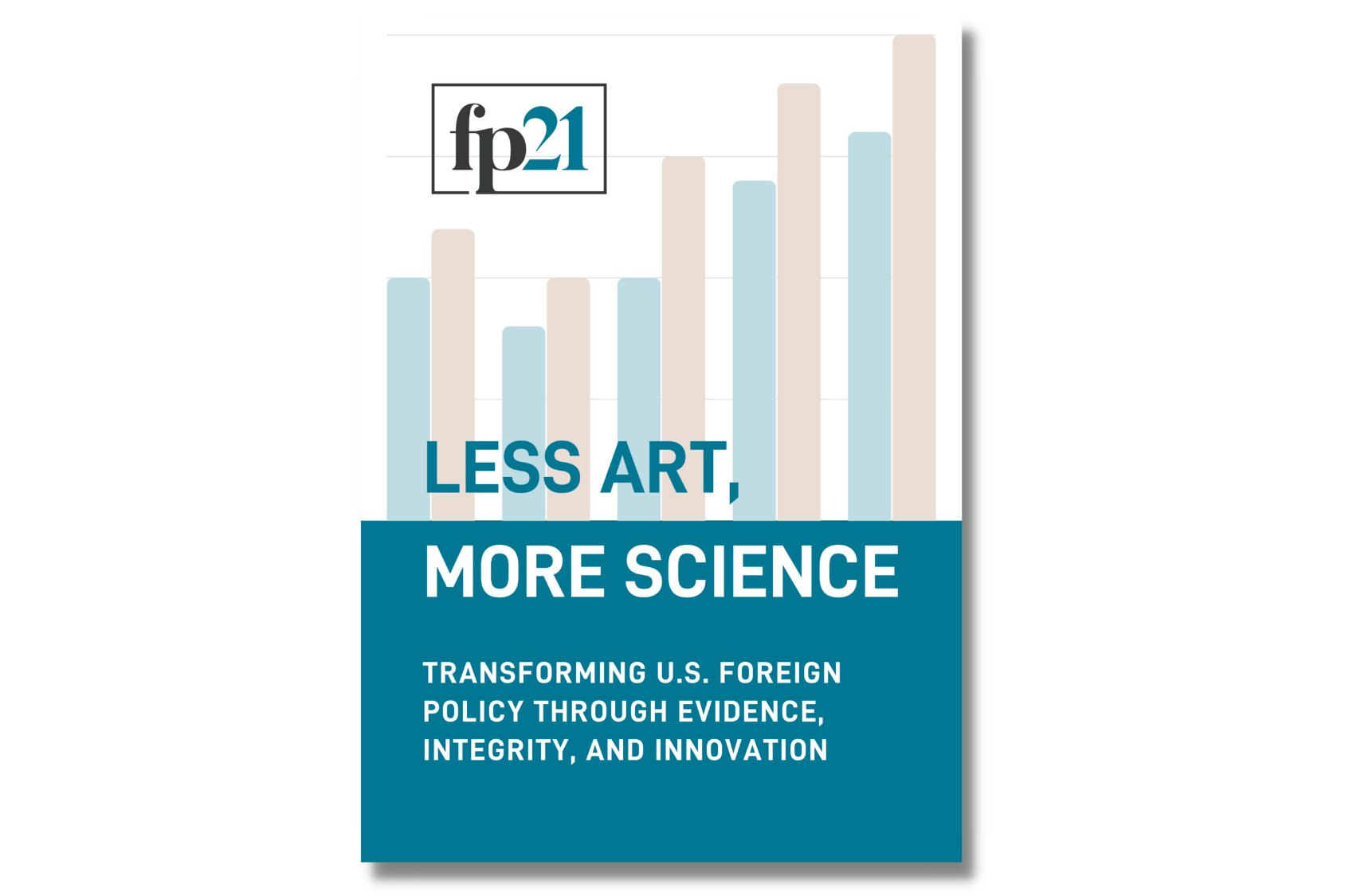
fp21’s Inaugural Report: Less Art, More Science
This report lays out a framework to achieve a more effective and modern culture of evidence-based foreign policymaking. From Silicon Valley to financial services, political campaigns to baseball, today’s most successful enterprises have built cultures grounded in evidence, analytics, and innovation. To lead in the 21st century, our government must harness more scientific tools to extract insight from a complex world and design better policy. Less Art, More Science lays out a pragmatic plan to transform the processes and institutions of foreign policy at each phase of policy making.

